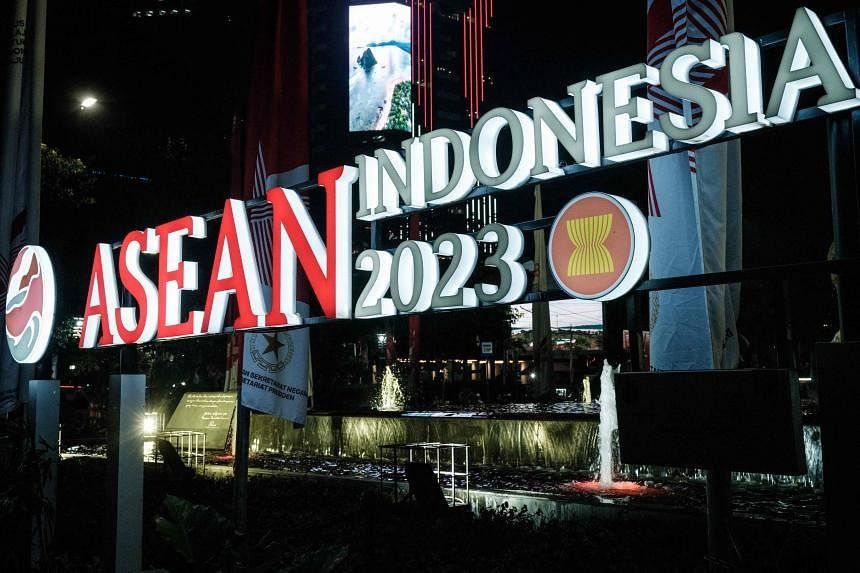
Source Melbourne Asia Review
MELBOURNE, Australia: Soon after settling into the Malaysian seat of government at Putrajaya, Prime Minister Anwar Ibrahim launched the government’s slogan, “Malaysia Madani”. MADANI in Malay is an acronym that translates to SCRIPT in English, standing for Sustainability, Care and compassion, Respect, Innovation, Prosperity, and Trust.
Sloganeering is an important part of democratic political culture and elite political behaviour in Malaysia. Political slogans are a means of imprinting one’s political philosophy on the public consciousness. They are meant to simultaneously undermine the narratives of previous administrations and current opposition parties. Political slogans are the major form of communication between candidates and voters.
Integral to Anwar’s strategy to anchor his Pakatan Harapan (PH) coalition government is the fact that the concept “madani” (literally meaning civilisation) also occupies an historical place in Islam and speaks to the role of Islamic values in guiding governance. Under the Anwar leadership, “madani Islam” is meant to add a modernising and civilising element, amid mounting ethnic and religious polarisation.
Yet, “Malaysia Madani” has so far not been matched by institutional reforms in some significant sectors. Indeed, there has been a mix of socio-economic gains and losses.
It is clear that the current administration comprises politicians of varying ethical hues, including those charged with corruption. Amid growing disappointment with the slow pace of reforms, the Coalition for Clean and Fair Elections (BERSIH) protested outside Parliament in February 2024.
Among demands for institutional reforms, BERSIH leaders also expressed disappointment with the weakening of anti-corruption efforts. BERSIH’s initiative reflects growing popular disappointment in Anwar’s government, with slight variations between the rural and urban populations. The disappointment is also shaped by the rising cost of living and weakening ringgit.
It is true Anwar’s administration inherited an economy that was already sliding due to both pandemic-related and geopolitical factors. But Anwar’s willingness to retain corruption-tainted ministers in his cabinet contradicts the moral appeal of the Madani brand. Meanwhile, the blatant neglect of reform in key policy areas, especially education, reveals a lack of foresight and a flawed notion of democracy and nation-building.
Given the government recently devised new plans on industry and energy, it’s difficult to comprehend why education continues to be trailing in the reform agenda.
For example, recent secondary school examination results reveal that 75% of students barely passed, and/or achieved minimal qualifications for gainful employment. The “merely passing” or failing candidates will not be able to apply to universities and other institutions of higher learning.
Anwar and his team have been soliciting investments from “big tech” companies such as Google and Microsoft. But Malaysia will need to produce more engineers, computer scientists, Artificial Intelligence (AI) programmers, cloud services providers, chip and robotics manufacturers, and semi-conductor experts.
According to one estimate, Malaysia must produce approximately 50,000 engineers in the next five years for these investments to bear fruit. However, our universities produce only about 5,000 engineers per year. This number could fall in the near future.
Is the Anwar administration committed to link education reform to madani’s “civilised, philosophical vision” for the nation? If so, reform of Malaysia’s schools and universities cannot be postponed.
Economics aside, good governance and democracy are facilitated by quality education. If Anwar Ibrahim’s reform agenda is going to succeed, his team must not delay overhaul of the education system. Instead, Anwar has declared that higher education reform will be delayed till 2026, when the current Higher Education Blueprint expires.
There have been some improvements to education in recent decades. The bottom 40% of income earners and women have gained more access to higher education.
However, there are more negatives. There has been a profound deterioration in the quality of teaching in schools and universities. Political leaders seem to have forgotten that teaching is a very important component in all educational establishments. Teachers say they are overworked because of too much paperwork.
Another serious problem is the heavy arm of politics in how schools and universities in Malaysia are managed and administered. This must be addressed if leaders want to improve the quality of teaching and scholarly activities.
Any discourse on democracy, good governance and national progress in Malysia must be linked to education reform. It is superficial to evaluate the Madani government’s performance, by mainly highlighting key economic and financial initiatives.
Poverty and the high cost of living are indeed real problems that require immediate attention. However, sustainable remedies and long-lasting improvements to society’s quality of life will never be achieved if the political elite remain myopic, and chart reforms based on a five-year election cycle.
To transform a nation’s education system and to be able to reap the benefits of this transformation takes generations. Does the Anwar administration have the political will to act on this sobering reality?








0 Comments
LEAVE A REPLY
Your email address will not be published